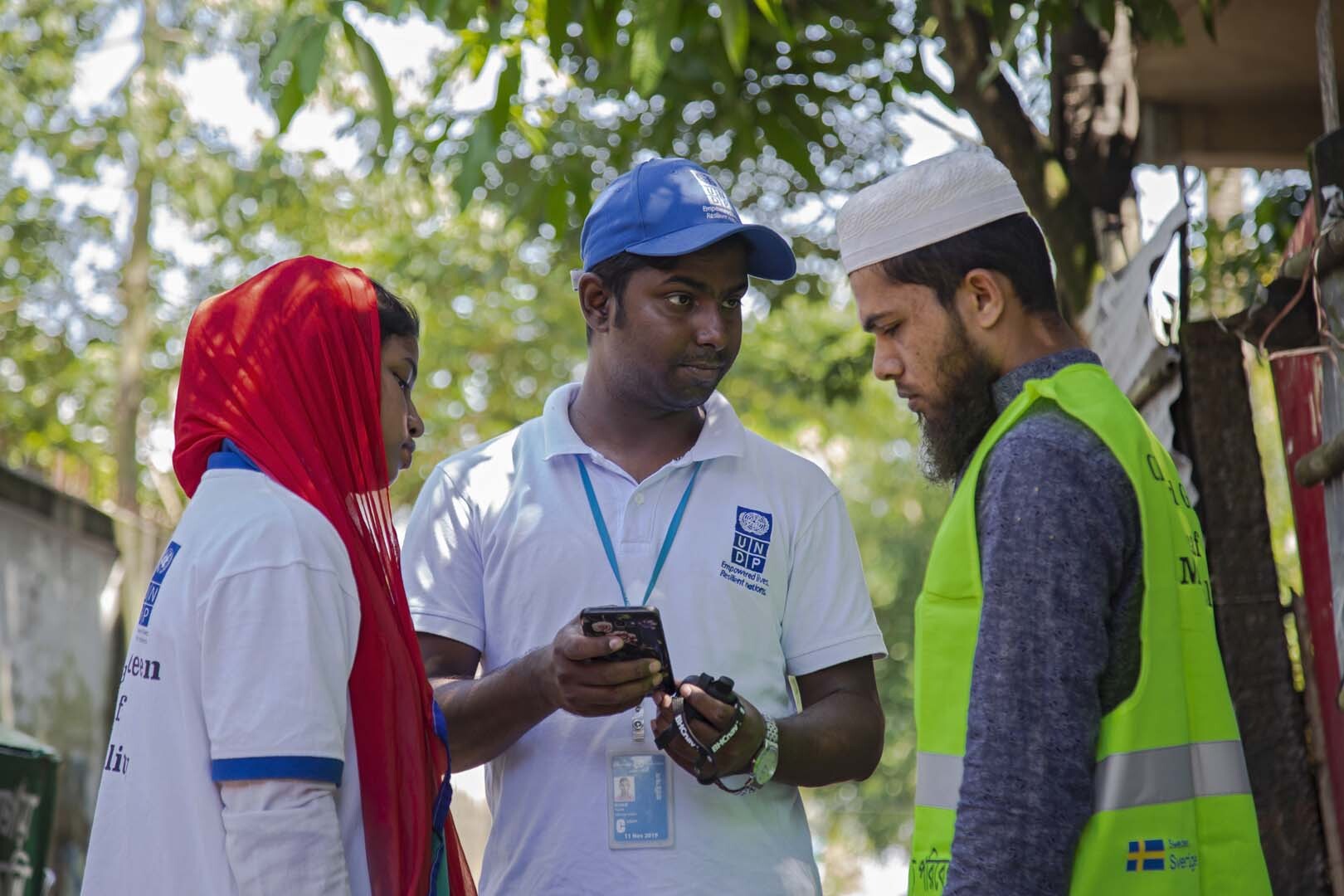

Photo: National UN Volunteer Tarek Khan provides field training to his supervisor on digital data collection on the Kobo Collect project by UNDP as part of the programme "Sustainable Solutions to Solid Waste: A local response to the Rohingya Crisis in Bangladesh".
© UNV, 2019
30 Days Checklist
At the end of their first 30 days, your volunteer will be feeling more capable and confident. Now, they will be eager to learn more and ready for you to challenge them with greater responsibilities and increased workload. Schedule a check-in meeting to go over these topics with the volunteer and harness their motivation.
Your orientation and induction with the UN Volunteer should include:
Continue weekly one-to-one meetings with your volunteer for the foreseeable future and continue to check how they’re getting on.
Offer your support on new or challenging tasks or introduce your volunteer to colleagues and peers as guides.
Invite them to shadow you at meetings to learn more about your organization and meet more colleagues.
Listen to their concerns, before trying your best to help fix these.
Advise your volunteer on good ways to address conflict and misunderstandings with colleagues and stakeholders. Outline possible next steps.
Provide feedback on their strengths and opportunities for improvement. Suggest how to fix mistakes and plug gaps in their experience.
Schedule their ongoing work plan and share this with your volunteer. With a clear plan and understanding of your expectations they will have everything they need to deliver successfully. Plus, together, you’ll have predicted and planned for potential challenges.
Offer to answer questions the volunteer might have.
Introduce your strategy, including key initiatives and developments at your organization or area of work.
Encourage creativity. Does your volunteer have ideas? Probably! They’re fresh to your team and bring a valuable new perspective. Offer opportunities to use their previous experience here.
Ask for feedback on their impressions and experience, with you, your team and the work activities. Try to understand if there are any barriers to their success, both in terms of their assignment, their adjustment to local living or their understanding of their role and responsibilities.
Reiterate zero tolerance policy on prohibited conduct, if needed.
Start with these tips on developing volunteers to maximize performance.
Review the volunteer’s Description of Assignment and clarify goals.
Ask your volunteer for their proudest achievements and encourage them to see what else they can bring to the assignment. Help create a personal development plan.
Discuss opportunities to apply acquired knowledge and skills at work as you go along. Also, note down their contributions and achievements to start an assignment-long record.
Suggest and approve host entity learning opportunities (experience, exposure, education) to help the volunteer reach set goals. Leverage online UNV learning programmes.
Keep checking-in through planned and spontaneous discussions throughout to support your volunteer’s progress at work.
UN Volunteers also bring transferable strengths, skills and ideas for innovation. Once fully integrated, ask for and provide opportunities to apply these at work.



